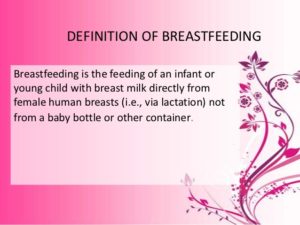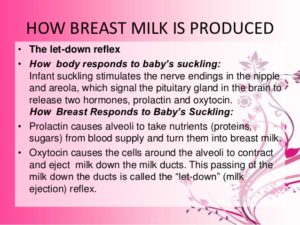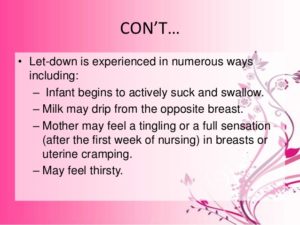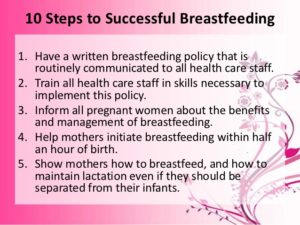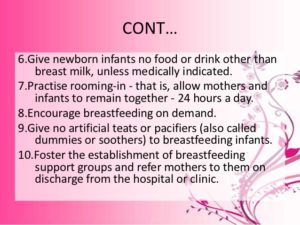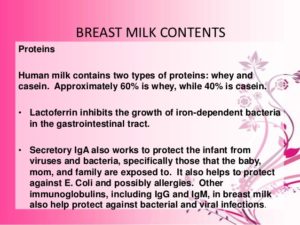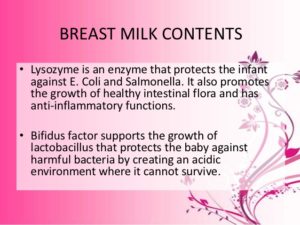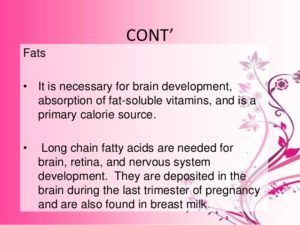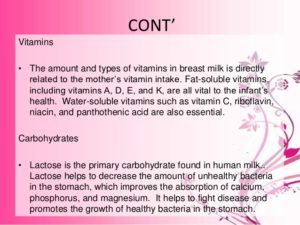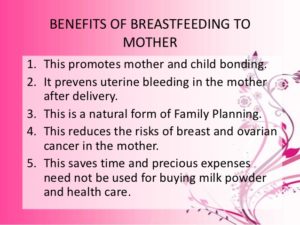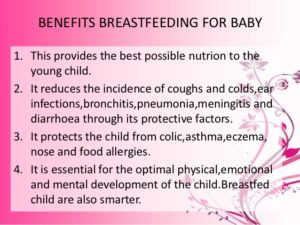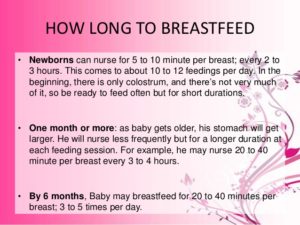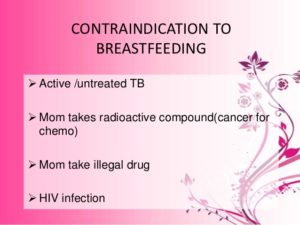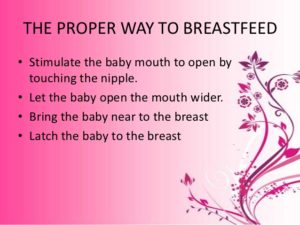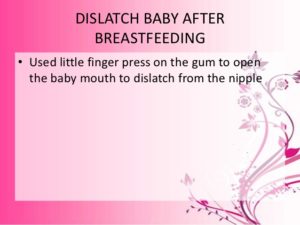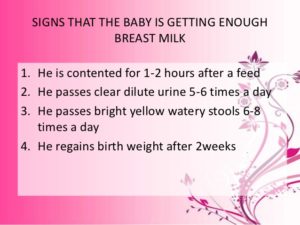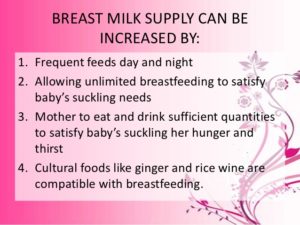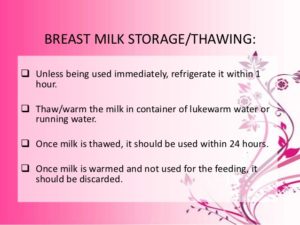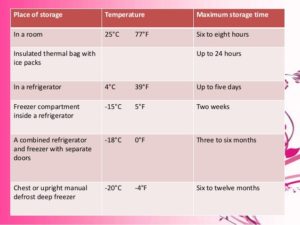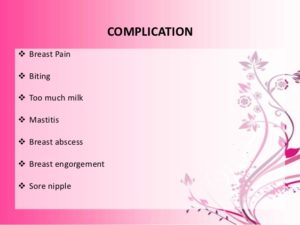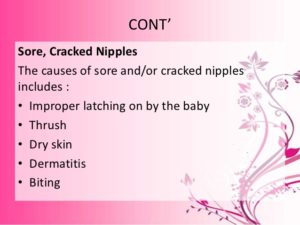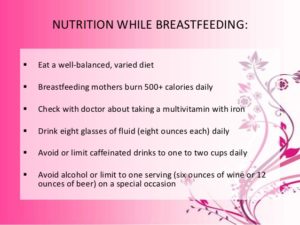৪। বুকের দুধ খাওয়ানো—-
এটা শিশুর সাথে মায়ের নিবিড় সম্পর্ক গড়ে দেয় এবং সন্তানের স্বাস্হ্য সুরক্ষার জন্য খুবই প্রয়োজন। মায়ের জরায়ুকে স্বাভাবিক অবস্থায় নিতেও সহায়ক। এছাড়া আরো অনেক বৈজ্ঞানিক যুক্তি আছে যা অবশ্যই কল্যান এবং বুকের দুধ যারা না খাওয়ায় তাদের ক্ষতিকর দিক হলো স্তনে ক্যান্সার হওয়ার ঝুঁকি থাকে পরে।
শিশুর খাবার মায়ের বুকের দুধ
—জন্মের পর পরই শিশুর খাবার মহান আল্লাহ দিয়ে রেখেছেন আর তা হলো মায়ের বুকের দুধ। একটু ভেবে দেখুন, সদ্য প্রসূত শিশুটিকে যখন বুকে ধরা হয়, নিজে থেকেই দুধ খাওয়া শুরু করে দেয়। এই শিশুটিকে কে শিখিয়ে দিয়েছে যে, এইভাবে খেতে হবে? সুবহানাল্লাহ। জীবানু নিয়ে চিন্তা করতে হয় না, খাবার প্রস্তুত থাকে সব সময়, এই দুধ এমন এক তাপমাত্রায় থাকে যা শিশুটির স্বাদ বাড়িয়ে দেয়। ২ বছর এই দুধ শিশুকে পুষ্টি দিয়ে থাকে। ৬ মাস পর্যন্ত শিশুর কোন খাবারই প্রয়োজন পড়ে না, এমন কি পানিও না হলে চলে, শুধুমাত্র বুকের দুধ দিয়ে চলে। মহান আল্লাহ কিভাবে রিযিকের ব্যবস্থা করে রেখেছেন। এই দুধ হলো সন্তানের হক। প্রতিটা মায়ের একটি স্বভাবজাত ধর্মই হলো নিজ শিশুকে বুকের দুধ খাওয়ানো। এর মাধ্যমে একদিকে যেমন শরিয়ার নির্দেশ মানা হয় অপরদিকে সন্তানের হক আদায় করা হয় ও সন্তানের সাথে এক নিবিড় সম্পর্ক বা বন্ধন গড়ে উঠে। আর এই বন্ধন পরিবার গঠনের জন্য খুবই গুরুত্বপূর্ণ। সন্তানের জন্য এই দুধ শুধু শারীরিক নয়, এটা আত্মীক ও নৈতিক খাদ্যও।
মহান আল্লাহ বলেছেন,
যে পিতা তার সন্তানের দুধ পানের সময়-কাল পূর্ণ করতে চায়, সে ক্ষেত্রে মায়েরা পুরো দু’বছর নিজেদের সন্তানদের দুধ পান করাবে। এ অবস্থায় সন্তানদের পিতাকে প্রচলিত পদ্ধতিতে মায়েদের খোরাক পোশাক দিতে হবে। কিন্তু কারোর ওপর তার সামর্থের বেশী বোঝা চাপিয়ে দেয়া উচিৎ নয়। কোন মা’কে এ জন্য কষ্ট দেয়া যাবে না যে সন্তানটি তার। আবার কোন বাপকেও এ জন্য কষ্টদেয়া যাবে না যে, এটি তারই সন্তান। দুধ দানকারিণীর এ অধিকার যেমন সন্তানের পিতার ওপর আছে তেমনি আছে তার ওয়ারিশের ওপরও। কিন্তু যদি উভয় পক্ষ পারস্পরিক সম্মতি ও পরামর্শক্রমে দুধ ছাড়াতে চায়, তাহলে এমনটি করায় কোন ক্ষতি নেই। আর যদি তোমার সন্তানদের অন্য কোন মহিলার দুধ পান করাবার কথা তুমি চিন্তা করে থাকো, তাহলে তাতেও কোন ক্ষতি নেই, তবে এক্ষেত্রে শর্ত হচ্ছে, এ জন্য যা কিছু বিনিময় নির্ধারণ করবে তা প্রচলিত পদ্ধতিতে আদায় করবে। আল্লাহকে ভয় করো এবং জেনে রাখো, তোমরা যা কিছু করো না কেন সবই আল্লাহর নজরে আছে। সূরা আল বাকারা: ২৩৩
এই আয়াতে স্ত্রী তালাক হয়ে গেলেও যেন শিশুটি তার অধিকার দুধ পান করতে পারে সেই অবস্থা তুলে ধরা হয়েছে। সুতরাং বুকের দুধ পান করানো একটি অত্যাবশ্যকীয় দায়িত্ব পিতা মাতার।
What Are the ABCs of Breastfeeding?
A = Awareness. Watch for your baby’s signs of hunger, and breastfeed whenever your baby is hungry. This is called “on demand” feeding. The first few weeks, you may be nursing eight to 12 times every 24 hours. Hungry infants move their hands toward their mouths, make sucking noises or mouth movements, or move toward your breast. Don’t wait for your baby to cry. That’s a sign he’s too hungry.
B = Be patient. Breastfeed as long as your baby wants to nurse each time. Don’t hurry your infant through feedings. Infants typically breastfeed for 10 to 20 minutes on each breast.
C = Comfort. This is key. Relax while breastfeeding, and your milk is more likely to “let down” and flow. Get yourself comfortable with pillows as needed to support your arms, head, and neck, and a footrest to support your feet and legs before you begin to breastfeed.
মায়েরা যেন শিশুকে পুরু ২বছর দুধ খাওয়াতে পারে এবং এই সময় যেন আবার সন্তান সম্ভাব্য না হয় সেজন্য আল্লাহর রাসূল স. কিছু বিধি নিষেধ করতে চেয়েছিলেন। যুদাম বিনতে ওয়াহহাব রা. বর্ণনা করেন, আমি নবী স. কে বলতে শুনেছি-আমি দুগ্ধবতী মায়েদের সাথে তাদের স্বামিদের মিলনকে নিষেধ করতে চেয়েছিলাম। কিন্তু যখন আমি রোম ও পারস্যের অধিবাসীদের দেখলাম যে তাদের ছেলে মেয়েরা “আল গাইলা”(দুগ্ধপোষ্য শিশু থাকাকালীন সংগম) অভ্যাসের মাধ্যমে জন্মগ্রহন করে ক্ষতির সম্মুখীন হয়নি,তখন আমি আর সে অভ্যাসটি নিষেধ করিনি। সহিহ মুসলিম:৩৪৩২
রাসূল স. বলেছেন, আল গাইলা অভ্যাস কার্যকর করলে তা শিশুকে যখন সে বড় হবে, ঘোড়ার পিঠ থেকে নিচে ফেলে দিবে। আবু দাউদ: ৩৮৪১ তিরমিযি
শিশুর জন্য বুকের দুধের কোন বিকল্প নেই,এটা আল্লাহ প্রদত্ত সন্তানের একটি বিশেষ খাদ্য ও নিয়ামত। মহান আল্লাহর আল কুর’আন থেকে জানতে পাই,
আমি মানুষকে এই মর্মে নির্দেশনা দিয়েছি যে, তারা যেন পিতা-মাতার সাথে সদ্ব্যবহার করে। তার মা কষ্ট করে তাকে গর্ভে ধারণ করেছিলো এবং কষ্ট করেই তাকে প্রসব করেছিলো। তাকে গর্ভে ধারণ ও দুধপান করাতে ত্রিশ মাস লেগেছে। এমন কি যখন সে পূর্ণ যৌবনে পৌঁছেছে এবং তারপর চল্লিশ বছর বয়সে উপনীত হয়েছে তখন বলেছেঃ “হে আমার রব, তুমি আমাকে ও আমার পিতা-মাতাকে যেসব নিয়ামত দান করেছো আমাকে তার শুকরিয়া আদায় করার তাওফীক দাও। আর এমন সৎ কাজ করার তাওফীক দাও যা তুমি পছন্দ করো। আমার সন্তানদেরকে সৎ বানিয়ে আমাকে সুখ দাও। আমি তোমার কাছে তাওবা করছি। আমি নির্দেশের অনুগত (মুসলিম) বান্দাদের অন্তর্ভুক্ত।” সূরা আহকাফ:১৫
এক ব্যক্তি নবীকে ﷺ জিজ্ঞেস করলো, আমার ওপর কার খেদমতের হক সবচেয়ে বেশি? নবী (সা.) বললেনঃ তোমার মা’র; সে বললোঃ তারপর কে? তিনি বললেনঃ তোমার মা। সে বললোঃ তারপর কে? তিনি বললেনঃ তোমার মা। সে আবারো জিজ্ঞেস করলোঃ তারপর কে? তিনি বললেনঃ তোমার বাপ। নবীর ﷺ এই বাণী হুবহু এ আয়াতেরই ব্যাখ্যা। কারণ, এতেও মায়ের তিনগুণ বেশী অধিকারের প্রতি ইঙ্গিত দেয়া হয়েছেঃ (১) কষ্ট করে মা তাকে গর্ভে ধারণ করেছে। (২) কষ্ট করেই তাকে প্রসব করেছে এবং (৩) গর্ভধারণ ও দুধ পান করাতে ৩০ মাস লেগেছে।
সুতরাং একজন মা অত্যন্ত ধৈর্য্য সহকারে শুধুমাত্র সন্তানের প্রতি মহব্বতের তাগিদে ও মহান আল্লাহর দেয়া দায়িত্বের সঠিক আঞ্জাম দেয়ার উদ্দেশ্যে এতো কষ্ট স্বীকার করে থাকেন। আর তাই মায়ের মর্যাদাও এতো বেশী দেয়া হয়েছে।
Blessing-
লজ্জাশীলতা ইমানের অংগ। অনেক বোনেরা দেখা যায় শিশুকে বুকের দুধ খাওয়াতে যেয়ে একটু বড় সন্তান তার সামনে বা অন্য কোন মাহরামের সামনে খোলাখুলিভাবে খাওয়ানো শুরু করেন, এটা একজন মুমিন নারীর জন্য প্রত্যাশিত নয়। সতর ঢেকে রাখার ব্যাপারে সচেতন হওয়া প্রয়োজন। শিশুটিকে আলাদা একটি স্থানে বা আড়ালে নিয়ে পরিষ্কার অবস্থা ( ঘামহীন, প্রয়োজনে পরিষ্কার করে নেয়া) নিয়ে বিসমিল্লাহ বলে খাওয়ানো শুরু করাটা আদব।
আরেকটি বিষয় খেয়াল রাখা জরুরী যে, নতুন অতিথিকে পেয়ে যেন ভারসাম্যহীন না হোন তা বিশেষভাবে লক্ষনীয়। স্বা্মীর প্রতি ও পরিবারের অন্য সন্তান থেকে থাকলে তার প্রতিও যত্নশীল থাকতে হবে। বিশেষ করে সদ্য ভূমিষ্ঠ সন্তানের আগে যদি অন্য সন্তান থাকে, তার প্রতি বিশেষ মনোযোগ না থাকলে অনেক সময় মানসিক সমস্যায় ভুগতে থাকে আগের সন্তানটি। আদর সোহাগে কাছে টেনে নিয়ে সময় দিন। আগের সন্তানের বড় হিসেবে গুরুত্ব বেশী, মা বাবারা সব সন্তানের প্রতি সমান আচরন করে থাকে, আপনার আচরনে তা বুঝতে দিন।
অনেক ক্ষেত্রে বিভিন্ন কারনে বুকের দুধ খাওয়ানো সম্ভব হয় না যেমন মায়ের নিপল সমস্যা বা শিশু দুধ টেনে আনতে পারে না, প্রিমেচিউর বেবী, সেক্ষেত্রে দুধ বের করে খাওয়ানো যেতে পারে, নীচের লিঙ্কে যেয়ে জানতে পারেন।
http://www.womenshealth.gov/breastfeeding/pumping-and-breastmilk-storage.html
দুধ পান করাতে যদি কোন মা অক্ষম হোন তাহলে অন্যকে দিয়ে দুধ পান করাতে গেলে পবিত্র চরিত্র ও দীনদার নারীকে দিয়ে যেন করানো হয়।
দুধ পান করানোর সময় একজন মা যা করতে পারেন তা হলো—-
- নিজেই কুর’আন তেলাওয়াত করতে পারেন মুখস্ত আয়াত হতে।
- মোবাইলে ছেড়ে মন দিয়ে শুনতে পারেন তেলাওয়াত।
- মহান আল্লাহর কাছে শয়তানের ওয়াসওয়াসা থেকে পানাহ চাওয়া ও শিশুর খাদ্যে বরকতের দোয়া করা।
- মুখস্ত করতে পারেন কোন বিশেষ দোয়া।
- পাশে বই নিয়ে পড়তে পারেন, যা আল্লাহর কথা আরো বেশী মনে করিয়ে দিবে।
- শিশুর মাথা উচু করে খেয়াল রাখা যেন নাকে চাপ না পড়ে।
how to breast feed awrah—
https://islamqa.info/en/113287
http://www.slideshare.net/cchaudoin87/lecture-7-breastfeeding
http://www.slideshare.net/10Preeti/breastfeeding-ppt
Benefits of Breast Feeding
1.What Are the Benefits of Breastfeeding for Your Baby?
Breast milk provides the ideal nutrition for infants.
It has a nearly perfect mix of vitamins, protein, and fat — everything your baby needs to grow. And it’s all provided in a form more easily digested than infant formula.
Breast milk contains antibodies that help your baby fight off viruses and bacteria.
Breastfeeding lowers your baby’s risk of having asthma or allergies.
Plus, babies who are breastfed exclusively for the first 6 months, without any formula, have fewer ear infections, respiratory illnesses, and bouts of diarrhea.
They also have fewer hospitalizations and trips to the doctor.
Breastfeeding has been linked to higher IQ scores in later childhood in some studies.
What’s more, the physical closeness, skin-to-skin touching, and eye contact all help your baby bond with you and feel secure.
Breastfed infants are more likely to gain the right amount of weight as they grow rather than become overweight children.
The AAP says breastfeeding also plays a role in the prevention of SIDS (sudden infant death syndrome).
It’s been thought to lower the risk of diabetes, obesity, and certain cancers as well, but more research is needed.
2.Are There Breastfeeding Benefits for the Mother?
Breastfeeding burns extra calories, so it can help you lose pregnancy weight faster.
It releases the hormone oxytocin, which helps your uterus return to its pre-pregnancy size and may reduce uterine bleeding after birth.
Breastfeeding also lowers your risk of breast and ovarian cancer.
It may lower your risk of osteoporosis, too.
Since you don’t have to buy and measure formula, sterilize nipples, or warm bottles, it saves you time and money.
It also gives you regular time to relax quietly with your newborn as you bond.
Are There Medical Considerations With Breastfeeding?
In a few situations, breastfeeding could cause a baby harm. You should not breastfeed if:
You are HIV positive. You can pass the HIV virus to your infant through breast milk.
You have active, untreated tuberculosis.
You’re receiving chemotherapy for cancer.
You’re using an illegal drug, such as cocaine or marijuana.
Your baby has a rare condition called galactosemia and cannot tolerate the natural sugar, called galactose, in breast milk.
You’re taking certain prescription medications, such as some drugs for migraine headaches, Parkinson’s disease, or arthritis.
Will I Make Enough Milk to Breastfeed?
The first few days after birth, your breasts make an ideal “first milk.” It’s called colostrum. Colostrum is thick, yellowish, and scant, but there’s plenty to meet your baby’s nutritional needs. Colostrum helps a newborn’s digestive tract develop and prepare itself to digest breast milk.
Most babies lose a small amount of weight in the first 3 to 5 days after birth. This is unrelated to breastfeeding.
As your baby needs more milk and nurses more, your breasts respond by making more milk. Experts recommend breastfeeding exclusively (no formula, juice, or water) for 6 months. If you supplement with formula, your breasts might make less milk.
Even if you breastfeed less than the recommended 6 months, it’s better to breastfeed for a short time than no time at all. You can add solid food at 6 months but also continue to breastfeed if you want to keep producing milk.
Breastfeeding is an order in the Qur’an and in Hadith!
Why more Muslim mothers today are avoiding to breastfeed their children …or not completing the period up to two years?
Breastfeeding is for the health of both the child and the mother
More than fourteen hundred years ago, before any medical knowledge on health values and the benefits of breastfeeding was available, Islam recommended every mother to breastfeed her children up to the age of two years if the lactation period was to be completed. Similarly, the final prophet Muhammad (peace be upon him) demanded that every mother breastfeed her child when he said “breastfeed your child even from the water of your eyes!”. Evidence suggests that different prophets and the last prophet Muhammad (peace be upon them), were all breastfed. It is such a noble divinely-inspired act to do that Islam allows a mother to be paid financially for breastfeeding if she so wishes! However every Muslim mother will be paid by Allah/god as the prophet Muhammad (peace be upon him) has said:”…for every mouthful and for every suck, (the woman) receives the reward of one good deed..!”Today, as the slogan breast is best is displayed in every clinic; we know that there are an increasing number of scientific and medical studies proving the great health and psychological benefits for both: mother and baby in breastfeeding. Conversely, we are increasingly aware of the harm, damage and susceptibility to diseases affecting children who are bottle-fed: Skin and allergic diseases, colic, gastro-intestinal diseases, obesity, kidney damage, lower iq, cot death etc….it is also known that breastfeeding prevents the death of six million infants annually by giving them: greater resistance against infections and diseases, especially because of colostrums, in the first few days of breastfeeding, as it is highly nutritious and full of antibodies (giving the child: strong and permanent immunity against diseases: best immunisation..!). Breastfeeding is important for the psychological health of children helping them to grow up stable, mature, loving caring, and intelligent. it is essential for bonding between mother and child and through skin-to-skin contact! Breast feeding is very beneficial to the mother too for the followings: lower chance of breast and ovarian cancer, less chance of obesity and osteoporosis, and it helps to bring back the womb to its natural size after childbirth.
Latest medical reports and studies proved new benefits from breastfeeding: halving the death of children from sudden infant death syndrome (SIDS ) reducing HIV infections in the babies reducing the risk of breast cancer, heart disease, stroke and diabetes. And the world health organisation (who) has replaced lately the standard child growth rate which was based on bottle fed babies, to a new child growth rate which is based on breastfeeding as it is more accurate! Proper and full breastfeeding is one way of natural family planning if needed, and is ideal for spacing children (lactation amenorrhea/lam).breastfeeding is a human right for every woman! Breastfeeding is very economical and saves us a lot of money! Unicef in Dhaka reported in 1996 that: mother’s milk can save Bangladesh $500 million per year! Breast milk is a natural wholesome pure healthy diet with the right formula and constituents to the child.
It is convenient, easy and at the right temperature! it is safe, easy to digest and is free! It is great for the environment and to save waste! if, for some reasons, the natural mother cannot give her own milk, Islam recommends that a “wet nurse”(another lactating woman) to breastfeeds her baby. But precaution should be made to avoid the marriage between the children of both women/mothers later.
Latest new health benefits and discoveries in breastfeeding in the last few months:
Breastfeeding improves a child’s chance of climbing the social ladder and having a successful adult life according to a long term study(the medical journal archives of diseases in childhood)
Breastfeeding will make the brain of the child grow by 30% more and lead to better language and emotion.
Breastfeeding reduces the risk to the mother of having high blood pressure.
Breastfeeding reduces attention-deficit/hyperactive children (Adhd)
Breastfeeding lowers the transmission of HIV from the mother to the child.
Breastfeeding cuts the risk of mothers dying from cancers or heart attacks.
Breastfeeding lowers the risk to the mother of having ovarian cancer by 2/3.
breastfeeding save the life of 830,000 lives annually(save the children)
Muslim mothers in Britain and all Muslim women in the world should join in the celebration/activities of this blessed week which is very much loved by Allah, the final prophet Muhammad (peace be upon him) and by Islam and the child.
Allah almighty has said, in the final holy book al Qur’an, more than 1400 years ago:
In the name of Allah, the most compassionate, the most merciful
“and the mothers giving birth to their children should breastfeed them up to two years, if they want to complete the lactation period” ( Al Qur’an: chapter 2,verse 233)
Finally:
it is worth mentioning that we are having today a rising number of breast cancers, many of it will be prevented in breastfeeding?
The common known other risk factors are:
Lack of breastfeeding, alcohol, smoking, obesity, abortion, having children late in life, saturated fats, stress of working mothers, use of contraceptive pills
All women should avoid these risk factors in order to keep healthy breasts and to be able to breastfeed their own children.
Dr A.Majid Katme (mbbch, dpm)
Spokesman: islamic medical association/uk
Weekly TV presenter (health show)
brest feed relative– https://islamqa.info/en/7225
